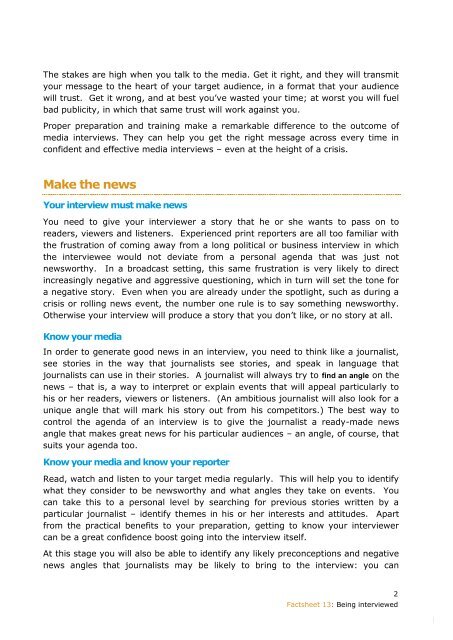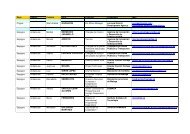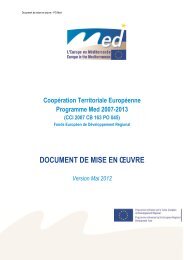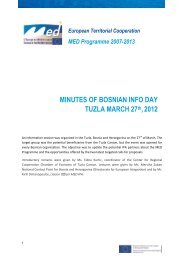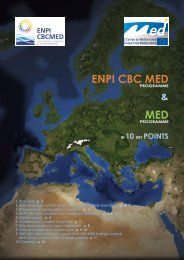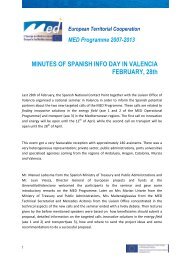MED Communication Handbook - Programme Med
MED Communication Handbook - Programme Med
MED Communication Handbook - Programme Med
You also want an ePaper? Increase the reach of your titles
YUMPU automatically turns print PDFs into web optimized ePapers that Google loves.
The stakes are high when you talk to the media. Get it right, and they will transmit<br />
your message to the heart of your target audience, in a format that your audience<br />
will trust. Get it wrong, and at best you’ve wasted your time; at worst you will fuel<br />
bad publicity, in which that same trust will work against you.<br />
Proper preparation and training make a remarkable difference to the outcome of<br />
media interviews. They can help you get the right message across every time in<br />
confident and effective media interviews – even at the height of a crisis.<br />
Make the news<br />
Your interview must make news<br />
You need to give your interviewer a story that he or she wants to pass on to<br />
readers, viewers and listeners. Experienced print reporters are all too familiar with<br />
the frustration of coming away from a long political or business interview in which<br />
the interviewee would not deviate from a personal agenda that was just not<br />
newsworthy. In a broadcast setting, this same frustration is very likely to direct<br />
increasingly negative and aggressive questioning, which in turn will set the tone for<br />
a negative story. Even when you are already under the spotlight, such as during a<br />
crisis or rolling news event, the number one rule is to say something newsworthy.<br />
Otherwise your interview will produce a story that you don’t like, or no story at all.<br />
Know your media<br />
In order to generate good news in an interview, you need to think like a journalist,<br />
see stories in the way that journalists see stories, and speak in language that<br />
journalists can use in their stories. A journalist will always try to find an angle on the<br />
news – that is, a way to interpret or explain events that will appeal particularly to<br />
his or her readers, viewers or listeners. (An ambitious journalist will also look for a<br />
unique angle that will mark his story out from his competitors.) The best way to<br />
control the agenda of an interview is to give the journalist a ready-made news<br />
angle that makes great news for his particular audiences – an angle, of course, that<br />
suits your agenda too.<br />
Know your media and know your reporter<br />
Read, watch and listen to your target media regularly. This will help you to identify<br />
what they consider to be newsworthy and what angles they take on events. You<br />
can take this to a personal level by searching for previous stories written by a<br />
particular journalist – identify themes in his or her interests and attitudes. Apart<br />
from the practical benefits to your preparation, getting to know your interviewer<br />
can be a great confidence boost going into the interview itself.<br />
At this stage you will also be able to identify any likely preconceptions and negative<br />
news angles that journalists may be likely to bring to the interview: you can<br />
2<br />
Factsheet 13: Being interviewed<br />
�


